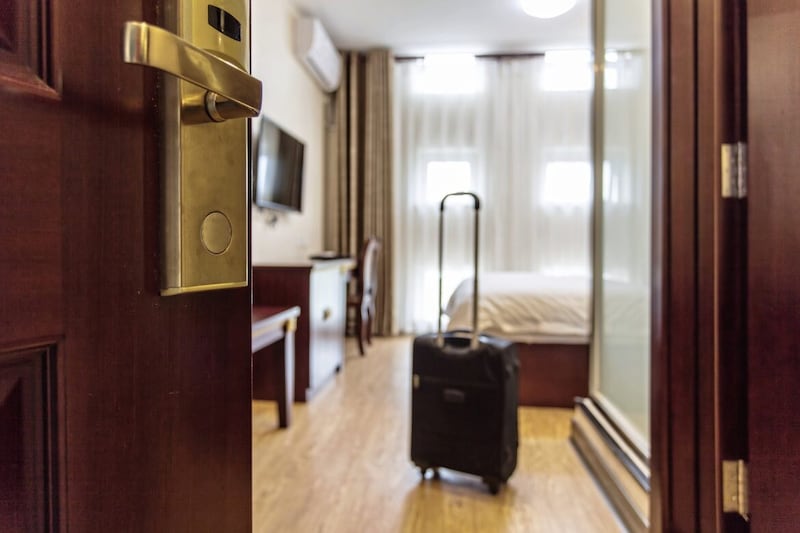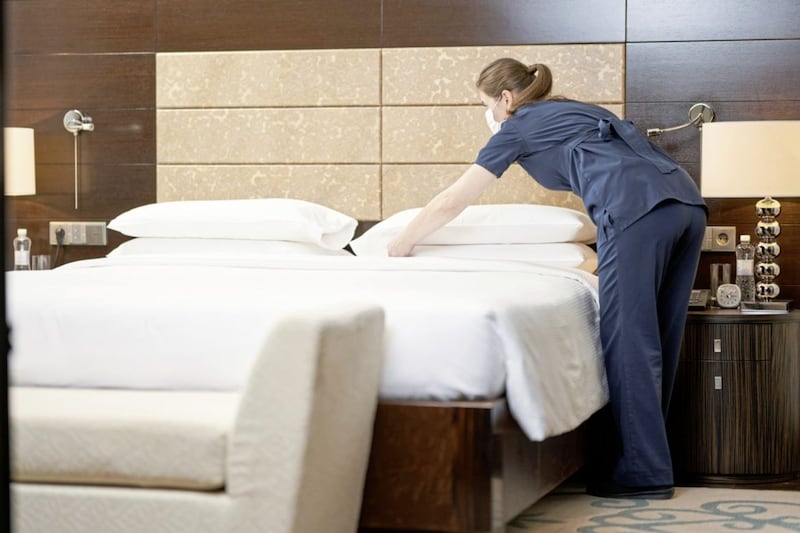THE number of hotels, guesthouses, hostels and B&Bs around the north fell during the pandemic according to a new industry study.
The Northern Ireland Hotel’s Federation’s latest market report said a combination of Covid-19 and hotels re-certifying as guest accommodation had reduced the sector to 141 hotels and 9,432 bedrooms as of March 2023, down from 146 last summer.
The report put the number of B&Bs currently in the north at 469, that was a fall of 92 since 2021, cutting the number of rooms by 253 to 1,621. The number of guesthouses fell from 78 to 69 in the same period.
The number of hostels has also dropped from 45 to 40 in two years.
But the same report shows growth in other areas. The number of premises classed as guest accommodation has increased from 307 to 385 in the past two years, expanding the category by 378 rooms to a 1,927 in total.
The number of self-catering premises has also increased by 30 to 3,746 in two years. But the report suggests the total number of bedrooms on offer in that category shrank by 48 to 4,783.
Covid-19 put the brakes on the rapid expansion of the north’s hotel scene, which benefited from more than £1 billion of investment since 2003, doubling its size.
The hotel sector had been on course to hit 10,000 rooms by 2020, but the Hotels Federation said the impact of the pandemic means it could be another year before the milestone is now breached.
“Despite more than forty projects in the public domain and a further fourteen schemes under consideration, or at conceptual stage, it is unlikely that the 10,000-bedroom barrier will be broken until well into 2024,” said Hotels Federation chief executive, Janice Gault.
“Prospective developers may adjust their original plans exploring new accommodation products or decide to build other commercial projects which may not involve a hotel element.
“The cost of construction, disruption of the supply chain and interest rates, are all contributing factors.”
The new report from the trade body also estimates that 8 per cent of the north’s hotel stock (approximately 750 rooms), is currently subject to government contracts.
The trade body said the contracts, understood to largely involve emergency accommodation for asylum seekers, is expected to continue well into 2023.
According to a recent BBC investigation, there are 20 hotels in Northern Ireland being used to house asylum seekers.
“It is difficult to quantify the exact impact of these contracts for the overall sector and a lack of social housing may see tourist accommodation being the solution to housing issues for some time to come,” states the report.
The contracts contributed to a recovery in the hotel sector last year, with 2.46 million bedrooms sold in total during 2022, close to the level recorded during 2018.
Janice Gault said the sector had performed well in 2022, but warned that escalating costs and inflation is squeezing profitability, meaning hotels face the increasing challenge of balancing rising costs while maintaining staffing levels.
“Northern Ireland could grow as a destination but needs support from government to ensure the whole industry reaches its full potential,” she added.
“A change in immigration policy, a VAT reduction, and a different approach to attracting people into the industry would all help.”







